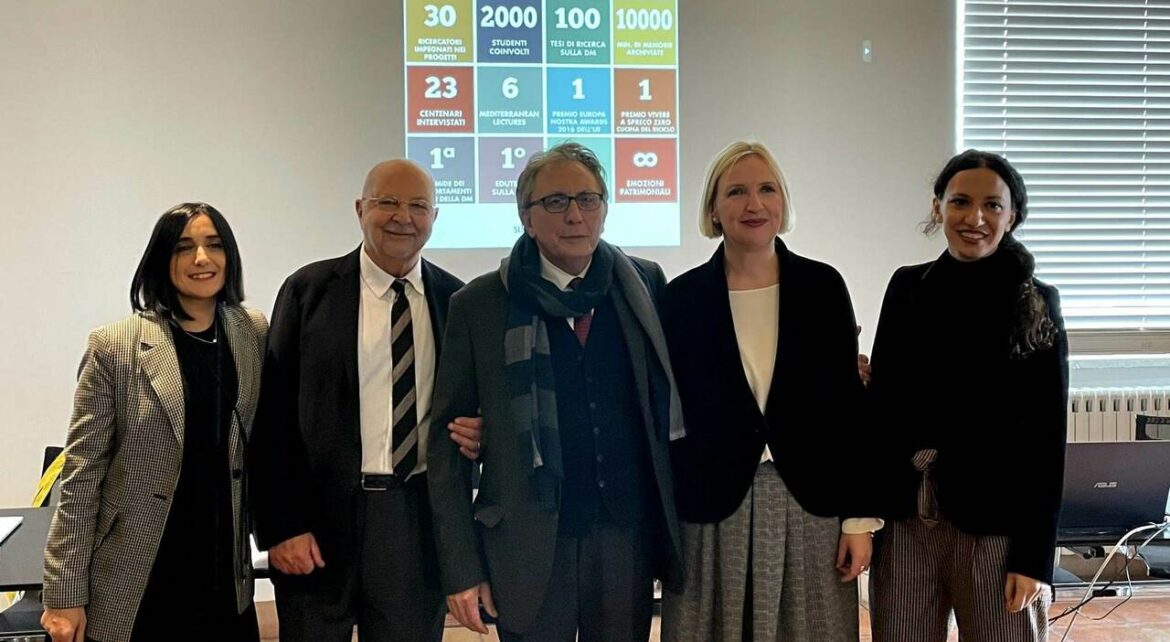The presence of the Minister of Health Orazio Schillaci for the presentation of the 10th Report on Obesity in Italy by IRCCS Auxologico and the ninth edition of the Mediterranean Lecture entrusted to philosopher Gennaro Carillo and dedicated to the theme ‘Mirror of Water. On the sea between philosophy and myth.’ On Monday, November 17, starting at 3 p.m., the Suor Orsola Benincasa University of Naples, home of MedEatResearch, the first Italian university research center specifically dedicated to social studies on the Mediterranean Diet, will celebrate with a prestigious double appointment the fifteenth ‘birthday’ of the recognition of the Mediterranean Diet as intangible cultural heritage granted in 2010 by UNESCO. At 3 p.m. in the Sala degli Angeli, coordinated by journalist Duilio Giammaria, the presentation of the 10th Report on Obesity in Italy will take place, which the World Health Organization now defines as a ‘non-infectious pandemic’ (complete program of interventions on www.unisob.na.it/eventi). The report is prepared annually by the Istituto Auxologico Italiano, which this year chose Naples for its presentation, already the venue, on indication of the Ministry of Health, in June, of the ‘General States of Prevention’ and identified as the ideal city from which ‘a choral and renewed commitment to win the challenge of obesity’ can start. At 4:30 p.m. in the Biblioteca Pagliara, the ninth edition of the Mediterranean Lecture will take place, the international cycle of master classes conceived by MedEatResearch at the Suor Orsola Benincasa University to celebrate each year with a scientific insight the ‘birthday’ of the recognition of the Mediterranean Diet as intangible cultural heritage granted in 2010 by UNESCO. ‘Medical sciences have produced multiple scientific evidences on the importance of the Mediterranean Diet for health,’ highlights Marino Niola, co-director of MedEatResearch, ‘but what anthropological and sociological studies that we carry out in our Research Center have added of value for identifying a dietary regimen that does not favor obesity is the ‘healthiness’ of one of the fundamental traits of the Mediterranean Diet, which is conviviality. Meals consumed chatting in company are slower, less voracious, more mentally and physically satisfying, and therefore healthier for our body weight as well.’ The first eight Mediterranean Lectures were given by Pier Luigi Petrillo, Marino Niola, Andrea Segrè, Elisabetta Moro, Matteo Lorito, Paolo Giulierini, Livia Iaccarino, Gabriel Zuchtriegel and are all available on demand within the Mediterranean Diet Virtual Museum, the world’s first digital museum entirely dedicated to the art of the Mediterranean Diet. This year, Gennaro Carillo, full professor of History of Political Thought at the Suor Orsola Benincasa University will be taking the stage. ‘Mirror of Water. On the sea between philosophy and myth’ will be the theme of the lecture. ‘Between Homer, Hippocrates, and Plato, what and how one eats acquires an ethical-political value of primary importance,’ anticipates Carillo, ‘and the diet is an expression of the form of life. There are human diets and inhuman, feral diets, like that of the Cyclops. Cooking food, for example, marks the boundary between human and non-human.’ It has been exactly 15 years since on November 16, 2010, in Nairobi, Kenya, the Intergovernmental Committee of the UNESCO Convention on Intangible Cultural Heritage approved the inscription of the Mediterranean Diet in the List of Intangible Cultural Heritage, recognizing with this definition ‘the traditional practices, knowledge, and skills that have been passed down from generation to generation in many Mediterranean countries, providing communities with a sense of belonging and continuity.’ ‘Italy,’ emphasizes Elisabetta Moro, co-director of MedEatResearch at the Suor Orsola Benincasa University, ‘holds the primacy of being the place where the Mediterranean Diet was discovered. For this reason, the Mediterranean Lecture is ideally dedicated to its discoverers, physiologist Ancel Keys (1904-2004) of the University of Minnesota and biochemist of the Mayo Clinic Margaret Haney Keys (1913-2010), who were the first to demonstrate its beneficial effects on health and recognize the social value of this lifestyle. The Keys are also credited with coining the name ‘Mediterranean diet,’ an unprecedented expression until 1975, the year it first appeared in their bestseller written in Cilento ‘How to eat well and stay well. The Mediterranean way’ (Doubleday, New York).
© ALL RIGHTS RESERVED
This article is automatically translated


Dining and Cooking